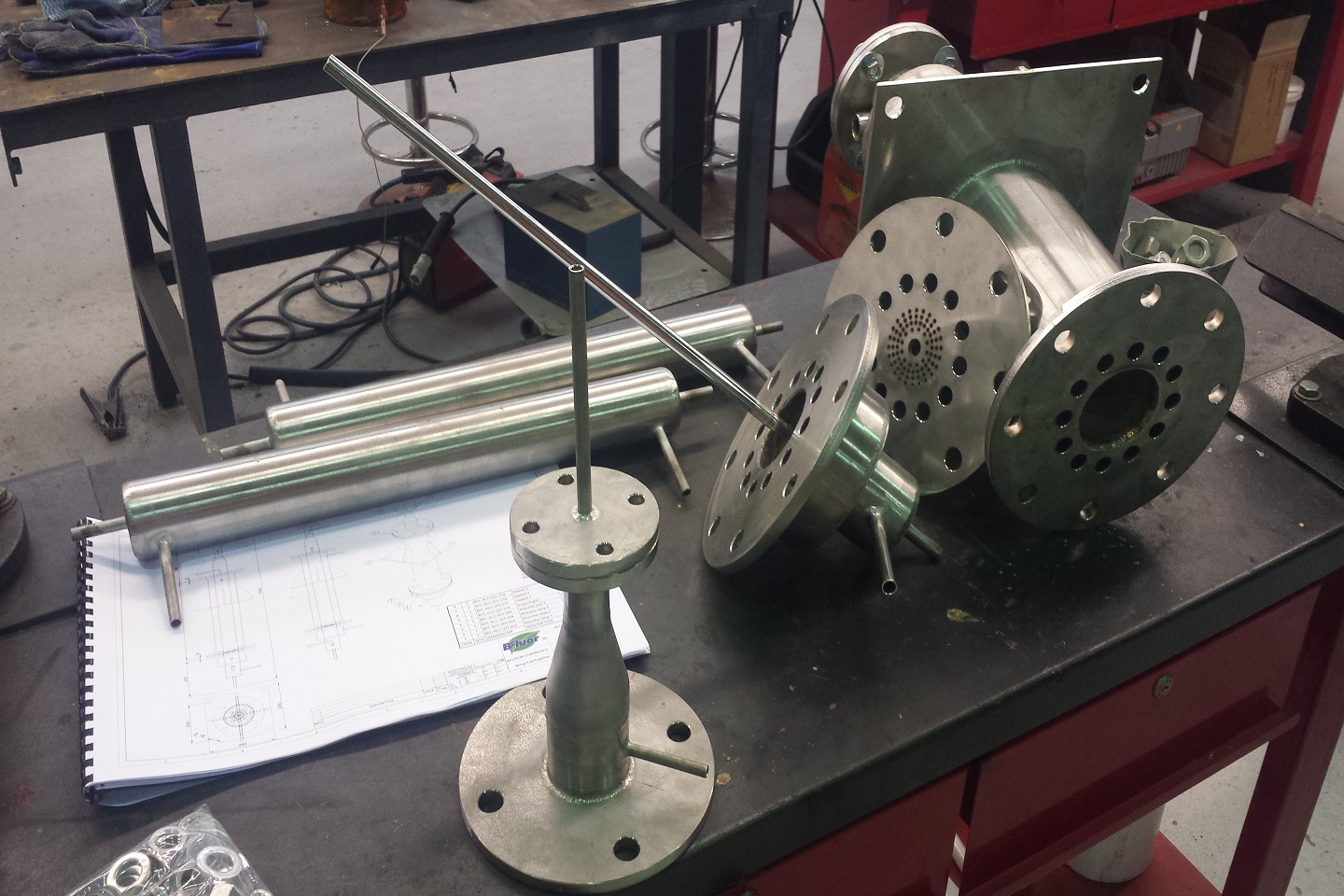ABx Group’s 87 per cent-owned chemical refining subsidiary, Alcore, has commenced construction of a pilot plant that will look to produce precursor chemicals used to recover fluorine from aluminium smelter waste known as “excess bath”. The Sydney-based company believes Alcore’s proprietary technology for recycling excess bath into high-value products such as aluminium fluoride, could deliver economic and environmental benefits to Australian aluminium smelters reliant on international imports.


ABx Group’s 87 per cent-owned chemical refining subsidiary, Alcore, has commenced construction of a pilot plant that will look to produce precursor chemicals used to recover fluorine from aluminium smelter waste known as “excess bath”. The Sydney-based company believes Alcore’s proprietary technology for recycling excess bath into high-value products, such as aluminium fluoride, could deliver economic and environmental benefits to Australian aluminium smelters reliant on international imports.
Aluminium fluoride is typically used in the production of aluminium in welding applications and in ceramic glazes and enamels.
Whilst demand has largely been influenced by the building and construction industry, there is also a growing demand for it in sectors such as food and beverage and pharmaceuticals.
According to ABx, some 90 per cent of aluminium fluoride is traditionally produced by reacting aluminium hydroxide, an intermediate form of alumina, with anhydrous hydrogen fluoride gas that is produced from fluorspar and sulfuric acid.
Alcore’s new process for producing aluminium fluoride consists of the recovery of fluorine from waste, eliminating the need to use fluorspar. Instead of aluminium hydroxide, it uses either bauxite or dross -a waste product from the casting of aluminium - as the source of aluminium.
Alcore’s proprietary technology requires the production of precursor chemicals in an aluminium fluoride refinery to enable extraction of fluorine. Alcore and Bfluor Chemicals, a specialist chemical business and technology management consulting group from South Africa, are collaborating on design of pilot scale reactors to recover such chemicals.
ABx says construction of the reactors has now commenced at Alcore’s research centre in New South Wales. It believes the reactors will produce sufficient volumes of precursor chemicals to allow the pilot plant to recover fluorine from excess bath.
The pilot plant will also be located at the research centre.
Alcore has also engaged another process engineering company to model the fluorine recovery process. According to ABx, results from the modelling and experimentation could enable Alcore to fast-track its process towards commercialisation.
Alcore Chief Executive Officer, Dr Mark Cooksey said:“It is exciting to have moved to the pilot plant stage. The opportunity to recover fluorine from excess bath is compelling because excess bath is becoming more of a waste challenge and there is significant demand for fluorine. We aim to demonstrate the technical feasibility at pilot scale as quickly as possible.”
Based on industry forecasting, the quantity of excess bath generated by aluminium smelters could rise in the future and create a greater focus on waste management by the global aluminium industry, according to ABx.
Notably, ABx believes its Alcore subsidiary is the only player developing a process to convert excess bath into high-value products such as aluminium fluoride.
Aluminium fluoride is a key component in aluminium smelting and also has potential applications in lithium-ion batteries.
According to ABx, Australia is the world’s largest producer of primary aluminium metal that fails to have its own aluminium fluoride manufacturing industry.
Importantly, Alcore could become Australasia’s first producer of aluminium fluoride. Commercialisation of Alcore’s proprietary technology and the development of Australia’s first production plant could help secure supply of aluminium fluoride for Australian smelters, the company says.
According to ABx, Australian smelters rely entirely on imported aluminium fluoride with more than 70 per cent of the product typically sourced from China.
Interestingly, the amount of Chinese aluminium fluoride imported to Australia appears to have fallen off a cliff with about 7,000 tonnes coming into the country so far this year, compared with more than 20,000 tonnes in all of 2020.
If Alcore can advance its refinery waste recycling process towards commercialisation, ABx could find itself on a path to resolving an aluminium fluoride supply crunch plaguing smelters across Australia.
Is your ASX-listed company doing something interesting? Contact: matt.birney@businessnews.com.au












